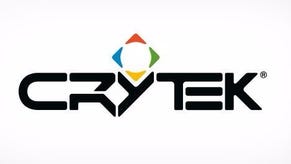Origin of War
EA rattles its sabers at Steam - but Origin's strategy is a throwback to the bad old days.
Yet regardless of the technical reason for the withdrawal of Crysis 2, the reality remains the same. Whatever EA chose to do with the game, it did in the full knowledge that it would result in it being pulled from Steam - Valve's terms may be strict in some regards, but they're hardly labyrinthine or difficult to understand, and it's extremely unlikely that there was no communication between Valve and EA before the title was dropped. EA may not have pulled Crysis 2 from Steam directly, but it took an action (what action, we don't yet know) which it knew would have that consequence.
Consider the sabers rattled, then. You don't pull a key title from the market's most successful digital retailer without being filled with confidence and belligerence in equal measure. Misplaced or not, EA's intentions are clear - it wants to fragment the PC digital download market and tear a chunk out of Valve's dominance.
On the face of it, that should be good for consumers and developers alike. More competition in the market is generally seen as a positive factor, so delivering a fresh challenge to Steam's dominance should improve service and prices for consumers, as well as the terms offered to developers. Yet that assumption ignores the nature of the service which EA is proposing with Origin.
The basic hurdle to entry, the need to install proprietary software, is still a high one
Origin won't actually be competition for Steam - not in any real sense. As a store front for EA's own products, Origin isn't designed to attract customers away from Valve's service - rather, it's a new client that you'll install alongside Steam, using Origin for EA games and Steam for everything else. Rather than introducing competition to digital distribution, a single-publisher service like Origin will simply distort the market. Its objective isn't to inject healthy competition and win market share through a better offering - it's to create a walled-off service that gives EA more control than before over its customers and pricing, as well as boosting the firm's profit margins.
In fact, while plenty of people bemoan the dominance of Steam, the reality is that Valve's service is the closest thing to a healthy competitive market for digital distribution that we've got. PSN and Xbox Live control their prices with an iron fist, ensuring that no hint of competition ever enters the marketplace. Single-publisher services like Origin (and, it should be noted, Blizzard's Battle.net service, although digital distribution is arguably something of an afterthought there at the moment) do the same thing, keeping prices inflated long after a competitive retail environment would have let the gas out of them.
On Steam, while competing retailers don't knock prices downwards, publishers themselves are at least exposed to competition from one another. Pricing a mediocre game at £40 when a rival is offering a great title for £30 on the same page of the same service is obvious commercial suicide, and while it's not exactly a fully competitive environment, examples like that do force publishers to price realistically and entice consumers with sales and special offers.
Steam itself, too, is open to competition in some regards - the likes of Direct2Drive and Impulse do exist, after all. This is by no means a perfect situation, and competition between download stores is a bit of a dodgy area in general, given how locked in customers tend to be to a store after a few purchases. It is, however, undoubtedly a healthier situation than having a market made up of walled gardens where each publisher exerts complete control.
Is this cause for concern? Perhaps not quite - not yet, at least. Origin has yet to launch, and bluntly, it seems very unlikely that it'll ever achieve the kind of success that will have Valve seriously worried, or EA's publishing peers scrambling to emulate it. The basic hurdle to entry, the need to install proprietary software, is still a high one, especially for gamers who are perfectly happy with the Steam client they've got - and it's hard to see EA's resolve to keep its titles exclusive to Origin holding out for very long, as the missed revenues from Steam mount up.
However, it's a worrying glimpse of a future that some publishing executives would love to impose upon their consumers. In the wake of the PSN fiasco, especially, does any consumer really want a world where every publisher whose games you ever play has a software client installed on your computer and your personal data tucked away on a dubiously secure server somewhere? I sincerely doubt it - and any publisher wishing for such a world would do well to remember that making it more difficult and annoying to pay for or access your content has rarely been a productive business model for any creative industry.
If you work in the games industry and want more views, and up-to-date news relevant to your business, read our sister website GamesIndustry.biz, where you can find this weekly editorial column as soon as it is posted.
















